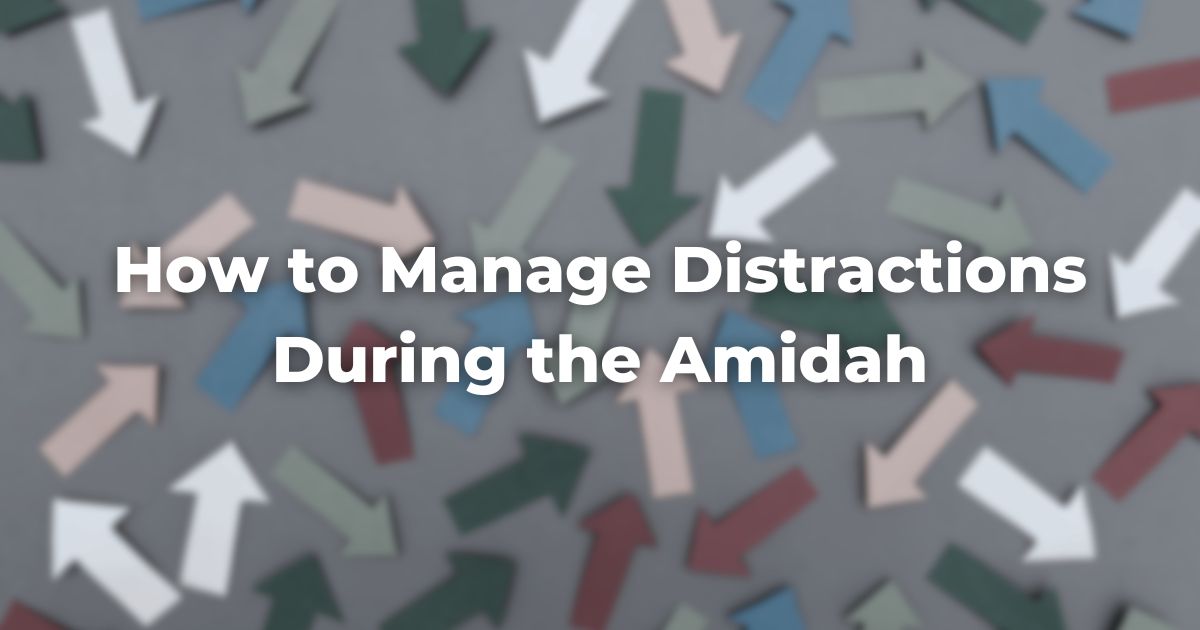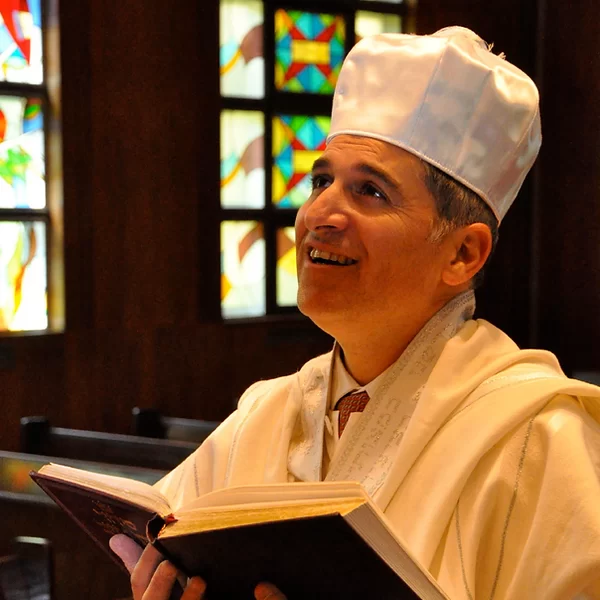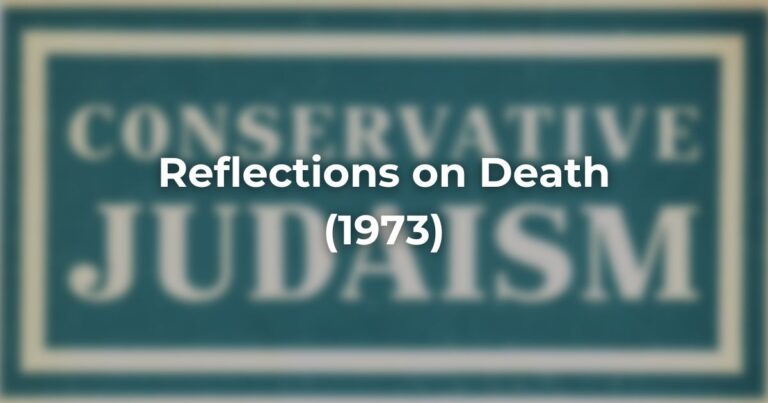The silent Amidah stands as the pinnacle of Jewish prayer, a moment when we are meant to feel closest to the Divine Presence. Yet precisely during these precious moments of silent devotion, our minds often fill with an endless stream of intrusive thoughts.
These uninvited mental wanderings range from mundane daily concerns to profound worries, creating a peculiar paradox: the very time we seek the deepest connection becomes a battlefield between spiritual aspiration and mental distraction.
“Prayer is the gate through which we enter Hashem,” writes Rabbi Nachman of Breslov. Through prayer, he teaches, we receive our vitality and can influence all worlds. In Likutei Moharan, he reveals that prayer has the potential to change nature’s rules and cancel decrees. Yet this sacred gateway often feels obscured by persistent distractions that seem beyond our control.
As a cantor who reflects on and prays frequently, I intimately know this struggle.
During the silent Amidah, my thoughts dart between everyday concerns:
Did I park properly?
Did I turn off the stove?
Did I answer that important email?
Sometimes, a phone will ring in the synagogue, the buzzing disrupts my concentration so completely that I lose my place in the prayer. The harder I try to focus, the more persistent these thoughts become, like waves breaking against the shore of consciousness.
A History of Struggles with Prayer
This challenge of maintaining focus during prayer is far from new.
Our greatest sages openly shared their own struggles. Rabbi Hiyya Ruba once made a remarkable admission: he maintained proper intention during the Amidah only once in his entire life (TalmudReferring to one of two collections, the Jerusalem and Babylonian Talmuds, edited in the 6th century, that contains hundreds of years of commentary, discussion, and exploration of the ideas in the Mishnah. One could describe it as Mishnah + Gemara = Talmud Read more Yerushalmi Berakhot 2:4). Shmuel, one of the great Amoraim of Babylonia, found himself counting chicks during prayer, while Rabbi Boon Bar Hiyya counted building bricks. Their honesty offers comfort to those of us facing similar challenges today.
Rabbi Levi Yitzchak of Berditchev once approached worshippers after the Amidah, greeting them as if they had just returned from a long journey. When his puzzled pupils asked for an explanation, he said, “These people were wandering in their thoughts during prayer, thinking about their goods at distant fairs. Only when they finished ‘Oseh Shalom‘ did they truly return here.”
What can we do about these intrusive thoughts and distractions?
Various approaches have emerged through generations of Jewish practice.
Some advocate praying the Amidah quickly to minimize opportunities for mental wandering. Others recommend the opposite: dwelling on each blessing mindfully, repeating words with intention, and adding personal prayers relevant to each blessing’s theme. For instance, during the blessing for healing, one might mention specific names; during the blessing for sustenance, one might detail particular needs, etc.
The truth is: Prayer being deeply personal; there is no one way to manage these thoughts. Each person must find their own methods to overcome intrusive thoughts during the Silent Amidah.
Over years of practice, I’ve developed my own approach: I write personal reflections in my siddur, in the margins, and refer to them during prayers. For example, during the “Sim Shalom” blessing, the prayer for peace that feels especially meaningful in troubled times, I pause to expand my thoughts. Here is what I’ve written in my siddur:
Please dear G-d, our father, you have many names, one of your names is ‘Shalom’ – Peace, so come to us, bring us yourselve, bring us peace, after all we are your children and deep inside our hearts we want peace among ourselves, what father would like to see his children in dispute? So please help us and guide us in your way, the way of Shalom.
Those private and intimate prayers that come from the heart, in addition to the Amidah prayer, add focus and emotions to my prayers and keep me centralized. As I’m writing this, at the end of 2024, I reflect on our tough situation in the Middle East and the rise of violence in our world, particularly antisemitism.
This approach isn’t foolproof.
Sometimes, my mind still wanders, and my concentration wavers. But Rabbi Nachman offers profound comfort: there is always an opportunity to begin again. We shouldn’t regret our mistakes in prayer, for God loves even curved and clumsy prayers. “Rahamana libba baei,” God seeks not flawless words, but the heart’s true devotion.
Changing the Question
Perhaps we need to shift our question from “What do I think about during prayer?” to “What do I do during prayer?”
This subtle change can transform our approach from passive observation of wandering thoughts to active engagement with prayer itself. As King David advised, “Hope for the LORD! Be strong! Give your heart courage and hope for the LORD!” (Psalm 27:14).
If, after prayer, we emerge even slightly transformed – Dayenu – that is enough. In this continuous struggle to connect, despite our imperfections, we fulfill the true purpose of prayer: growth and connection with the Divine.
Author
-

Born in Jerusalem (1965), Boaz Davidoff is a cantor, musician, and rabbinical student living between Israel and Montreal. He was a fellow in the first cohort of the Exploring Judaism's Writer's Fellowship. He serves as cantor at Montreal's Shaarezedek Synagogue and teaches Bar-Mitzvah, voice, and guitar in Israel. Boaz performs concerts solo and with his band across Israel. Currently in his final year of rabbinic studies at Jerusalem's Schechter Institute, he occasionally substitutes as rabbi in Montreal. Married with three children, Boaz is passionate about Israel, organizing charity concerts and events to support the country. He combines his musical talents with religious leadership, bridging communities in Canada and Israel.
View all posts






